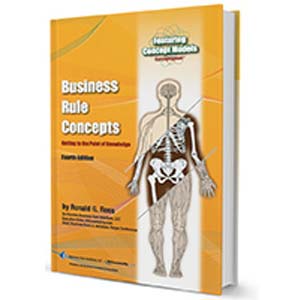The Next Pendulum Swing
There have been a multitude of pendulum swings. I propose the current pendulum swing is people.
Over the holiday, I was talking to some friends in the financial sector about the current economic crisis. They had a record year in 2008 and a good year in 2009. I was curious how they were able to accomplish this incredible feat when the majority of other organizations in their industry were struggling to survive.
The solution was so simple it was almost frightening. When they saw the trends that were occurring in the financial markets and banking industry they did something very straightforward. They called a meeting.
So what was so unique about this meeting? They brought together people "with experience" from all the departments in the organization and asked for ideas. The experience many of these people brought to the meeting was a first-hand knowledge of how they survived the eighties. Not everyone remembers the eighties, but mention 18–20% prime interest lending rates and people remember. These people knew what they did well last time and what they didn't. Based on their experience, they created a plan. To address the potential crisis, they didn't bring a bunch of computers together in a room or hire a bunch of consultants. They brought their own people together because they had the knowledge and experience.
However, when an organization faces a crisis, it's often these people who are older and have experience and a higher salary that are the first to go. This strategy leaves a company without the people they would normally bring together to solve the very crisis that they've been fired to solve. I challenge companies to do some research before making what are seemingly arbitrary workforce reductions or redundancies. What they will find is that they are losing a vast source of knowledge that will be very expensive to try to replace. Some human resource statistics indicate that it may cost between 6–8 months of an average salary plus benefits to replace "good" employees with as little as five years of experience. Without access to this vast source of knowledge and experience, where will organizations turn when trying to solve, or perhaps more appropriate prevent, crisis from occurring?
The swing of the pendulum in a crisis seems to determine the next trend in business. There have been multiple swings in the pendulum over time. Some examples are: centralized to de-centralized, in-sourced to out-sourced, regulation to de-regulations, and information age to conceptual age.
The current swing from information age to conceptual suggests that organizations are beginning to realize the important role that people play in their success. It's interesting to think about how we arrived here.
It all started with a focus on people — the master carpenter, master blacksmith, etc. People were originally the most important aspect to producing anything. People were masters of their trade. If you wanted to become a master then you worked as an apprentice under the supervision of a master to learn the trade/skill.
The pendulum swings.
We entered the Age of Mass Production. People were no longer as important as the product.
With mass production, the focus shifted from people to product. One result was labor unions. Unions were formed, in part, to address the lack of attention to the people. The result was more cost for manufacturing and more constraint on how the work was done and who could do it. This added inefficiencies to the work being done. There was more focus on the pieces and less focus on the overall process. The result was problems with quality and a lack of control points and corrective action during the production process.
The pendulum swings.
We entered the Quality Age where organizations spent massive amounts of money to address product quality. A very popular approach was the "TEAM" concept from Japan. This allowed some important progression but the "culture" of Americans is more of an individual excellence perspective vs. team. Discovering the "TEAM" doesn't work as well in "America"; there was push toward technology as a solution.
The pendulum swings.
We entered the Information Age. The focus was on technology and what miracles it could produce for organizations. Wonderful accomplishments occurred as a result of very creative uses of technology. Organizations could do things that were never possible before. Then came the realization that there were some things technology just couldn't fix. Organizations began to document how things outside the technology world worked. This was called 'business process'. Some organizations took an even broader perspective and actually began to look at how everything worked together. This is often called 'Architecture'.
The pendulum swings.
We enter the Process Age. In this age, the attention is on 'process'. However, just like product, there is a potential danger of a single-minded focus on process. Although a focus on process should also include an attention to resources, our trend has been to be singularly focused, to the exclusion of the whole. One example is the "Supply Chain" process. The acronym, SIPOC (supplier, input, process, output, customer) itself suggests a more singular focus on the process, not the "people in the process." Therefore, eventually, due to the lack of the continuing development of the people's skills and capabilities, the process becomes less effective, efficient, and adaptable.
The pendulum swings. (Hopefully)
We enter the Conceptual Age. In this age, the attention is specifically on the people, their experiences, emotions, ideas, skills, and knowledge. People become the most important aspect of understanding and fixing complex business problems.
So what is the next pendulum swing?
Whatever the swing is, there is one thing that seems certain. We would be much better off in the middle of these swings, and not at the extremes. The financial organization took a more mixed approach. They used information in their systems together with knowledge of their processes and their people's experiences to help them put together a successful strategy for the future.# # #
About our Contributor:
Online Interactive Training Series
In response to a great many requests, Business Rule Solutions now offers at-a-distance learning options. No travel, no backlogs, no hassles. Same great instructors, but with schedules, content and pricing designed to meet the special needs of busy professionals.











How to Define Business Terms in Plain English: A Primer
How to Use DecisionSpeak™ and Question Charts (Q-Charts™)
Decision Tables - A Primer: How to Use TableSpeak™
Tabulation of Lists in RuleSpeak®: A Primer - Using "The Following" Clause
Business Agility Manifesto
Business Rules Manifesto
Business Motivation Model
Decision Vocabulary
[Download]
[Download]
Semantics of Business Vocabulary and Business Rules